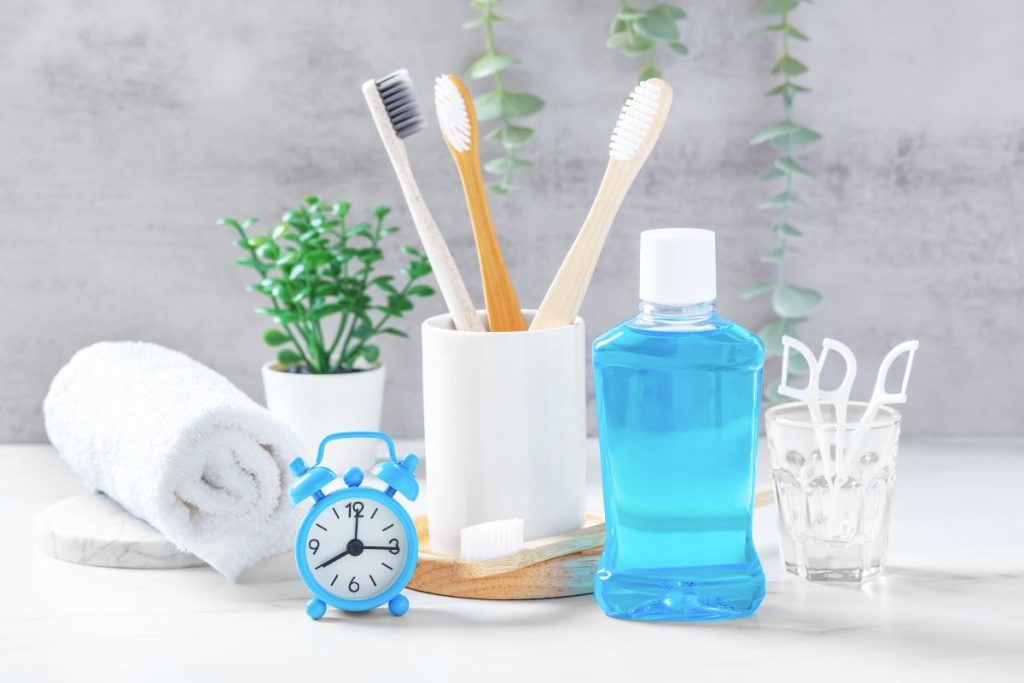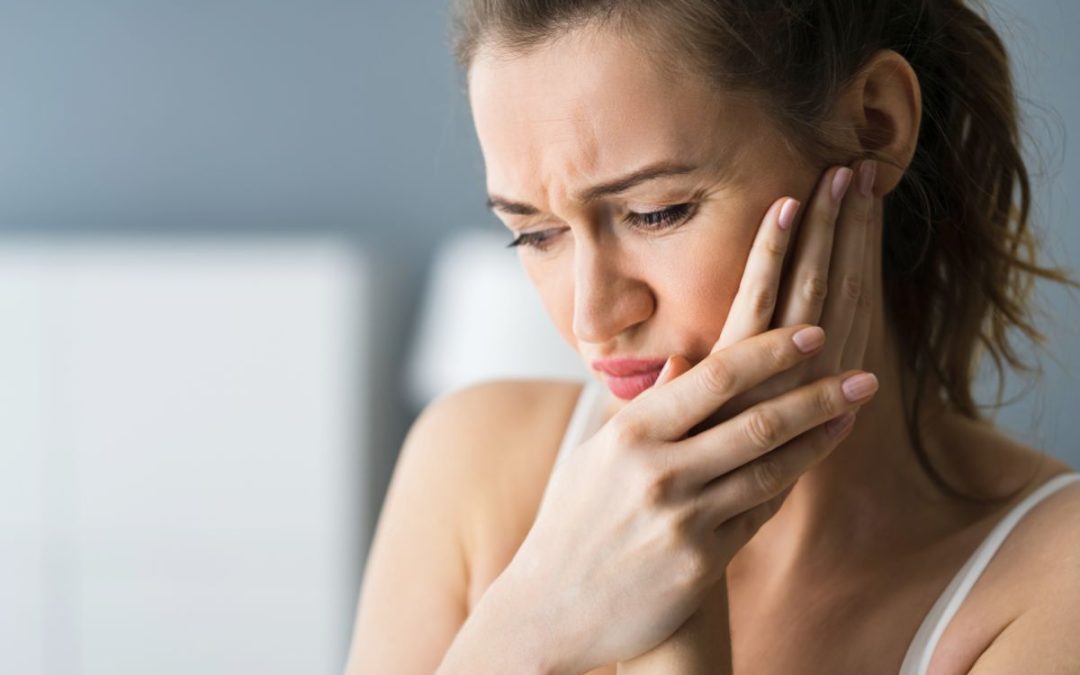Waking up in the middle of the night with dental pain can be both frustrating and overwhelming.
Whether it’s a sharp, sudden ache or a persistent throb, knowing how to manage the discomfort until you can see an emergency dentist in Edmonton is essential.
Here are some practical tips for immediate relief so you can rest easier and take the first steps toward resolving the issue.
Common Causes of Nighttime Dental Pain
Nighttime dental pain can disrupt your sleep and leave you searching for answers.
Understanding the root cause is the first step toward effective treatment.
Here are some common reasons why you might be experiencing discomfort at night:
Tooth Decay
Tooth decay is one of the most frequent culprits of nighttime dental pain.
Cavities can expose sensitive nerves, causing a sharp or lingering ache, especially when lying down.
If untreated, decay can worsen, leading to infections or abscesses that heighten the pain.
Gum Disease
Inflamed or infected gums, caused by conditions like gingivitis or periodontitis, can result in throbbing pain that intensifies at night.
This discomfort may also be accompanied by swelling, bleeding, or a bad taste in your mouth, signaling the need for professional care.
Bruxism
Teeth grinding or clenching, known as bruxism, often occurs during sleep without you even realizing it.
Over time, this can lead to tooth sensitivity, jaw pain, and even cracked teeth, making nights particularly uncomfortable.
Dental Injury
Even a minor dental injury, such as a chipped tooth or a recent filling, can become more noticeable when you’re trying to sleep.
The change in position or increased blood flow to your head can amplify the discomfort, reminding you that professional attention may be needed.
Immediate Relief Tips for Dental Pain
Nighttime dental pain can be tough to endure, but there are steps you can take to ease the discomfort and get through the night.
These quick remedies can provide temporary relief until you’re able to see a professional.
Rinse With Warm Salt Water
A warm salt water rinse helps cleanse the mouth and reduce inflammation, offering gentle relief.
Mix half a teaspoon of salt with a cup of warm water, swish it around your mouth for about 30 seconds, and then spit it out.
Use Over-the-Counter Pain Relievers
Medications like ibuprofen or acetaminophen can help reduce pain and inflammation.
Always follow the recommended dosage and consult a pharmacist or dentist if you have questions about what’s safe for you.
Apply a Cold Compress
Placing a cold compress or ice pack wrapped in a cloth on the affected side of your face can numb the area and reduce swelling.
Apply it for 15–20 minutes, and then take a break before reapplying if needed.
Elevate Your Head
Lying flat can increase blood flow to your head, intensifying dental pain.
Prop your head up with an extra pillow to ease the pressure and help you rest more comfortably.
Avoid Trigger Foods and Drinks
Hot, cold, sugary, or acidic foods and beverages can irritate a sensitive tooth or gums.
Stick to bland, lukewarm options until the pain subsides.
Try an Oral Anesthetic Gel
Over-the-counter oral gels containing benzocaine can numb the painful area temporarily.
Apply a small amount directly to the affected spot following the product instructions.
Preventing Future Dental Pain

dental pain at night
Taking proactive steps can help you avoid the discomfort and inconvenience of dental pain.
By incorporating healthy habits into your daily routine, you can keep your teeth and gums in excellent shape.
- Maintain a consistent oral hygiene routine: Brush twice daily and floss once a day to prevent plaque buildup and protect your oral health.
- Use proper dental products: For the best results, use fluoride toothpaste, a soft-bristled toothbrush, and antibacterial mouthwash.
- Stay hydrated: Drinking water supports saliva production, which helps cleanse your mouth and protect against bacteria.
- Don’t ignore early symptoms: Address minor pain, swelling, or sensitivity early to prevent more serious issues.
- Visit your dentist regularly: Routine checkups and cleanings catch problems early and keep your smile healthy.
By committing to these habits, you can significantly reduce your chances of experiencing dental pain and enjoy long-lasting oral health.
When to Call an Emergency Dentist in Edmonton
Certain dental issues require immediate attention to prevent complications and alleviate discomfort.
Recognizing when to contact an emergency dentist in Edmonton can make all the difference in preserving your oral health.
Severe or Persistent Pain
Sharp or unrelenting pain could signal an underlying issue like an infection, decay, or a damaged tooth.
If over-the-counter remedies aren’t helping, it’s time to seek professional care.
Swelling or Infection
Facial swelling, gum inflammation, or signs of infection like pus or fever are serious concerns.
Prompt treatment can prevent the infection from spreading and causing further health risks.
Broken or Chipped Tooth
A broken or chipped tooth may lead to pain, sensitivity, or sharp edges that can cut your mouth.
Immediate attention helps restore the tooth and prevent further damage.
Lost Filling or Crown
If a filling or crown falls out, it leaves the affected tooth vulnerable to sensitivity, decay, or further damage.
An emergency visit can protect and repair the exposed area.
Uncontrolled Bleeding
Bleeding that doesn’t stop after applying pressure for 10–15 minutes needs to be addressed urgently.
This could indicate a serious issue requiring immediate intervention.
Knocked-Out Tooth
A knocked-out tooth is a true dental emergency.
If you act quickly, there’s a chance it can be reinserted.
Handle the tooth carefully, keep it moist, and contact an emergency dentist as soon as possible.
Signs of an Abscess
An abscessed tooth may cause severe pain, swelling, sensitivity, or a bad taste in your mouth.
This condition can lead to serious complications if untreated, so don’t wait to get help.
Say Goodbye to Dental Pain: Contact Your Emergency Dentist in Edmonton
Nighttime dental pain can leave you counting the hours until morning, but relief is closer than you think.
At Oxford Dental, we welcome walk-ins during our open hours to help you address your pain as soon as possible.
Do what you can to get comfortable, and when morning comes, visit us during our open hours or contact us for more information.

